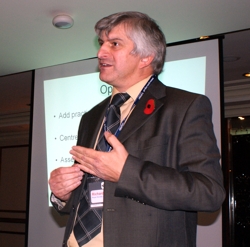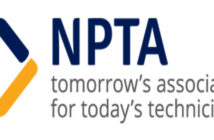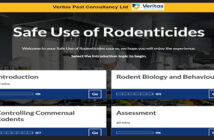There was a divergence of opinion about what the future should hold for the RSPH/BPCA Certificate in Pest Control (Level 2) when it was debated at the Pest Control News (PCN) workshop during PestTech.
PCN chose this topic for its 4 November workshop because new government regulations are changing the way qualifications can be described.
|
The room was packed to hear Richard Burton from RSPH outline the choice the industry is now facing. He explained how the new Qualifications and Credit Framework or QCF is standardising qualification descriptions. QCF introduces the concept of credit values with one credit representing 10 hours of learning for the average learner. A qualification with anything up to 12 credits (i.e. one that takes Mr or Ms Average 120 hours to achieve) must be called an Award. For the industry’s RSPH/BPCA qualification to continue to be called a Certificate it must be worth between 13 and 36 credits. As things currently stand, there are not enough of these ‘notional hours’ in the RSPH/BPCA qualification to allow it to continue as a Certificate. So does size matter? The qualification’s status as Level 2, which describes its difficulty, is not under threat but without extending the time involved it will have to be called an Award. The change will only affect new entrants – no-one is going to have their Certificate taken away and be re-issued as an Award. To maintain the Certificate name, the number of hours spent will have to be extended. However, as Richard Burton pointed out, by no means all 130 hours have to be from formal training. Revision time, time for reflection and assimilation and time spent on practising skills can all be counted. |
|
|
|
One way round the problem might be to split the current five-day Warwick course into say three blocks with project work in between the formal sessions. Another might be to provide distance learning in advance of starting the course so a project that had to be completed or research which had to be done before attending the five day formal training to ensuring candidates have a certain level of knowledge before starting. Complicating the discussion however is another issue – the limited amount of practical training included in the current qualification. Whilst the RSPH’s survey of training centres indicated that most incorporate some practical there is scope to increase this. For this reason RSPH is proposing that now a greater element of practical training and assessment could be added. Opening up the debate to the audience, chairman Jonathan Peck asked for a show of hands on whether any change was needed. The audience was pretty evenly split with 16 voting that they were happy with the status quo and the change to an Award and 20 voting for the qualification to continue as a Certificate by increasing the time taken. Among those who felt that a change in name would make little difference was Dr John Simmons who pointed out that when the Level 2 qualification was originally devised it was as an assessment of the theoretical knowledge pest controllers need before they go out to do any pest control. It was never actually intended to be a Certificate of Competence and indeed there is already a more senior BPCA qualification available; that of Accredited Technician in Pest Control. On the other hand, others clearly saw a name change as a downgrading and, despite Richard Burton’s assurances to the contrary, they felt a Certificate carried with it far more prestige than an Award. Consultant John Charlton highlighted how the way pest controllers come into the industry has changed. In the past the main route was through Local Authority pest control departments and the large pest control companies where they received extensive practical on the job training. But these days a large number of the new entrants are setting up their own small businesses. They see the Level 2 Certificate as the qualification they need to do the job and they don’t have access to the sort of practical training that the large companies and Local Authorities still provide. Comments from two relatively new entrants who had set up their own businesses confirmed John Charlton’s assessment. Both agreed that some additional practical training would be have been useful for them when they were setting out. What do you think should the qualification be extended or are you happy to see the name changed to an Award? Richard Burton at RSPH would like to hear your views. Click here to send him an email. As Jonathan Peck pointed out: “If you don’t give your views, you really can’t complain if changes are made which are not to your liking.” |
||





